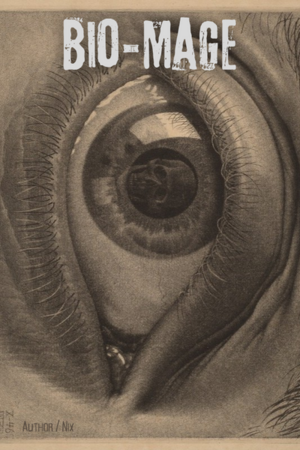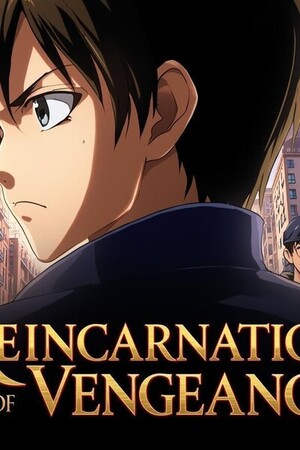Chapter 1:
THE SCULPTURE
BIRTHCRY VOLUME1 - THE TALE OF MY MOTHER'S LAST SCREAM BEFORE I WAS BORN
BIRTHCRY1 ARC 0 - THE SCULPTURE INCIDENT
BIRTHCRY 1 : CHAPTER 1 – THE SCULPTUREAugust 20, 2011 – Himalayas
The news swept across the Himalayan foothills like an avalanche—abrupt, unrelenting.
In a remote mountain village shrouded in mist and legend, an ancient sculpture had been unearthed. Not by scholars or archaeologists, but by accident—an earthquake had loosened the earth's grip, and the villagers had found it jutting from the rock like a fossilized omen. Word spread quickly, though not through official channels. It moved as whispers do—between shepherds and nomads, through fireside stories and rumors that darted like mountain wind.
One such whisper reached the ears of a man who wasn't what he seemed.
A spy, embedded in the region under the guise of a humanitarian worker, had been listening. He sent a coded message across secure lines to SYRIA 71, a research facility so secret even its coordinates were classified beyond the highest international clearance levels. A coalition of twelve world governments funded it—united not by trust, but by fear.
The transmission arrived silently in the hands of one of the technicians. It bypassed the normal chain of command and was rerouted, without fanfare, to Dr. Boston.
Inside the main lab of SYRIA 71, Dr. Boston stood alone, the glow of a single monitor illuminating the hard edges of his face. He scanned the message with unblinking intensity. Each word carved deeper into his mind. His fingers gripped the console.
"This isn't just an artifact." His voice dropped, urgent. "It's a key."
Before he could dwell further, a voice crackled through his comm: "Assemble the team." He nodded, understanding immediately.
Within hours, a strike unit had been assembled—hand-picked operatives outfitted with prototype combat suits: angular, matte-black armor that shimmered faintly beneath the sterile lights of the subterranean briefing chamber. The suits were Boston's creation—designed not only for survival but superiority.
The air was thick with tension. No one knew why this mission had bypassed standard briefing channels. Then the comm line buzzed to life, and a voice crackled through: cold, clinical, commanding.
Dexter.
The elusive handler who spoke not as a man, but as a representative of the alliance itself.
"This is an important mission. Retrieve the sculpture. No traces. No failures. You are to return with the object intact—and unobserved."
Boston was said to suit them up, but now he suited in the same armor as the soldiers, stood at the far end of the room. He said nothing. His presence among them went unquestioned—another black figure among the faceless.
The next morning, under thick fog and silence, the team boarded a stealth aircraft hidden in a restricted military hangar. The jet screamed across continents in hours, weaving through radar nets and satellite scans. Inside, the cabin was a quiet sea of metal and breath.
Dr. Boston kept to himself. He spoke only when necessary. His responses were clipped, rehearsed. His eyes—normally quick and analytical—seemed locked on something far away. The other operatives noticed. Something in him didn't sit right. But he wore the same armor. He held the same orders.
No one challenged him.
They landed before dawn on a rudimentary airstrip carved into a mountain ridge. The Himalayas greeted them with sharp winds and howling silence. Snow crunched under their boots. Visibility was low, the air thin.
They moved toward Shambhala, the village at the heart of the rumor.
It wasn't much—just a scatter of stone huts clinging to the mountainside like old bones. Roofs sagged under frost. Smoke drifted lazily from a few chimneys. The place looked ancient, untouched by time or electricity.
An operative stepped forward to address the villagers, but they responded with confusion. The dialect was local—fast, fragmented, unrecognizable.
Boston stepped forward. His voice cut through the cold.
"I'll handle this."
He spoke the local tongue fluently—just one of the fifty-two languages he'd mastered over the years. The villagers stared, surprised. He approached an elder seated beside a goat pen, a man with calloused hands and eyes like deep wells.
"Sir…We're looking for a sculpture," Boston said, his tone respectful, deliberate.
The old man's gaze shifted. There was a flicker—fear. Then his hand subtly brushed over a keypad phone at his side. Boston noticed.
"What did he say?" one of the soldiers asked.
"Hard to tell. The dialect's fast. He said something about... following."
The old man gestured for them to come.
They wound through narrow paths, over ridges and along frozen trails. The terrain grew more hostile with every step. Boston walked near the front, trying to gauge the guide's body language. Something was wrong.
After nearly an hour of silence, Boston asked in the local dialect, "How much farther?"
His pronunciation slipped on a crucial word.
The old man's eyes narrowed. Without answering, he quickened his pace.
The group stopped at a small bakery—one of the few warm places they had seen. The team entered, welcoming the scent of fire-roasted bread. But the warmth didn't last.
Boston noticed a shadow moving inside the bakery.
A gunshot cracked through the stillness.
Adrenaline surged. The soldiers hit the ground, weapons drawn. Boston scanned the scene.
The guide was gone.
"It's a trap," Boston growled. Outside, sirens began to wail.
Shouts in the distance. Heavy boots. Then the gunfire started.
Police forces rounded up the area. Bullets rang out against steel. The operatives' armor held, gleaming as it deflected fire. They returned the onslaught with machine precision. The air turned acrid with smoke and blood.
The chaos escalated.
From beyond the ridge came the thunder of rotor blades and treads—the Lindian Army, alerted and closing in.
Boston’s earpiece cracked, A voice came over the comms: "Proceed immediately to the shrine location. Extraction is en route, ETA 15 minutes.”
Boston's voice rang through the comms. "The intel said there's a shrine. That's where the sculpture is. Coordinates uploaded. Move!"
The team cut through the village like a scalpel through flesh, ignoring cries and collapsing walls. Flames rose behind them. Civilians fled in terror.
They reached the shrine—a squat, stone structure half-buried in ice, lit from within by flickering torchlight. They entered with weapons raised.
At the center of the chamber stood the sculpture.
Jagged. Humanoid. Its form was rough-hewn but intentional, almost organic. Etched into its surface were glowing symbols that pulsed faintly, as if alive.
Boston stepped forward—and stopped.
He couldn't read the markings, yet it stirred something inside him. It wasn't awe. It was dread. A realization that SYRIA 71 had only scratched the surface of what this object truly was.
"Secure it," he ordered. His voice was flat, mechanical.
The team sealed the sculpture in a reinforced containment case. No sooner had they done so than boots pounded outside. A rocket screamed past the entrance, exploding against a nearby cliff. Dust and heat filled the shrine.
They bolted.
Helicopters swooped down, their turrets blazing. Boston activated his weapons—a pair of kinetic launchers that emerged from his forearms—and fired. The projectiles tore through steel. One chopper exploded mid-air, scattering fire across the snowscape.
The operatives sprinted toward the extraction point, navigating a gauntlet of fire and falling debris. The extraction plane, masked in stealth plating, had arrived—its turbines roaring like thunder. The rear hatch yawned open.
One by one, the team leapt aboard, bullets sparking off their backs. Boston and few were the last to enter, still clutching the container.
As the plane lifted off, the scene below shrank into darkness—a village in flames, a mission completed, a secret unearthed.
Inside the aircraft, no one spoke.
The sculpture—now encased in titanium and sealed under biometric locks—sat in the cargo bay like a loaded gun. Boston didn't take his eyes off it until they closed the door.
His fingers trembled faintly.
The others watched him. Something in his silence unsettled them more than the firefight had.
And Boston knew, deep in the marrow of his bones, that this was only the beginning.
The sculpture was not just an artifact. It was a message. And someone—something—was listening.




Please sign in to leave a comment.